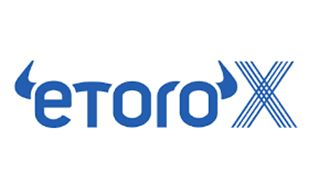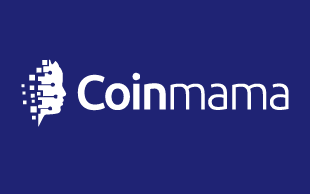RelayPay is an Australian FinTech company that bridges the traditional finance space with the emerging blockchain finance space. Its products act as an interface for payment solutions, lending models, and a variety of other financial services. RelayPay is a registered digital currency exchange service in Australia and a regulated financial services provider. It also offers a variety of products to merchants and financial institutions. Read on to learn more about RelayPay's offerings and how it can help your business.
| 👑 Cryptocurrencies | BTC, ETH, SNX, AAVE, COMP, LINK, YFI, RENBTC, WBTC, USDT |
| 📈 Securities tradable | 19 cryptocurrencies |
| 💵 Cost per trade | Dynamic fee based on the spread |
| 💬 Customer service | Email : Yes, Phone support : Yes, live chat : Yes. |
| 💰 Desposit Fees | None |
| 💰 Withdrawal Fees | None |
| 💰 Payment Methods | Bank transfer (ACH) |
| 🔋 Mobile app | IOS App : Yes, Google Play Android App : Yes |
Initially, RelayPay only offered trading via Bitcoin, but gradually started adding more digital currencies that suited its decentralized standards. It has now expanded its list to include more digital currencies like Litecoin, Ethereum, XRP, as well as many others that offer promise and suit its criteria.
RelayPay is a cryptocurrency platform that was founded in 2019 the current CEO & Co-Founder is Charlie K.. RelayPay has headquarters in Sydney, New South Wales, Australia and offers the buying and selling of over 19 cryptocurrencies to customers all over the world. Buying and selling cryptocurrency can be done online. If you are looking to trade crypto using your mobile phone, RelayPay offers native mobile apps to buy and sell cryptocurrencies, directly from your phone.
You can use exchanges to trade one cryptocurrency for another like Bitcoin to Dogecoin. With RelayPay you can also exchange your cryptocurrency with fiat currency, such as the UK Pound or US Dollar.
Risk warning : Trading cryptocurrencies is high risk. When trading CFDs losses may exceed deposits.
RelayPay works best particularly for active retail traders seeking to trade as well as store multiple digital currencies, as it offers an element of convenience. The platform also happens to be a viable option for institutions and businesses looking to utilize digital currencies, and it allows traders to convert one digital currency to another.
Following are the advantages of using RelayPay:
RelayPay is considered one of the simplest platforms for cryptocurrency investing. You can easily register and deal in digital currencies within minutes. RelayPay also offers a learning platform that rewards users with cryptocurrencies to learn about how they work.
RelayPay has an impressively extensive range (over a hundred and growing) of digital currencies that you can trade, not to mention the most popular ones like Bitcoin, Cardano, Solana, and many more. This is in stark contrast to other financial applications or brokers that offer the promise of cryptocurrency trading but provide only a few of the most popular coins.
High liquidity guards investors from price slippages in a market that is already volatile. RelayPay currently ranks among the highly liquid exchanges.
RelayPay offers an entire course of tutorials and exams as a means of educating users about digital currency trading as well as some of the digital currencies being offered. Taking classes also earns you certain digital currencies.
Contrary to brokers focused on trading, RelayPay enables traders to take custody of their cryptocurrency assets for themselves. RelayPay provides its cryptocurrency wallet, but traders can bring their wallets. This way, traders can pick the solution that suits them the most.
RelayPay also enables traders holding digital currencies with them to take part in staking rewards. Staking is similar to earning interest with a bank account. This, however, comes with different risks. Staking generates revenue from traders’ holdings as they are utilized for validating transactions in a digital currency. RelayPay shares that type of reward with its traders. RelayPay takes care of the technical side, and the extra coins are sent to the trader’s account on an established schedule.
Following are the disadvantages of RelayPay:
Although RelayPay has a vast variety of altcoin choices for beginner investors to interest themselves in. Those seriously wanting to trade in altcoins may not find a good selection there.
RelayPay has higher fees compared to other exchanges. Its fee structure can also be confusing. If you are using RelayPay ‘s basic platform, you will not be able to find a schedule before you proceed to place a trade.
RelayPay allows you to trade around 19 digital currencies including BTC, ETH, SNX, AAVE, COMP, LINK, YFI, RENBTC, WBTC, USDT and many more.
RelayPay has 19 cryptocurrencies available to registered users. These cryptocurrencies include BTC, ETH, SNX, AAVE, COMP, LINK, YFI, RENBTC, WBTC, USDT.
RelayPay offers its own stablecoin called RelayPay. Stablecoins are meant to mitigate volatility in relation to digital currencies like Bitcoin. Stablecoins are usually pegged to stable reserve assets like the US dollar or gold. Traders can buy stablecoins on RelayPay.
RelayPay has a decent variety of altcoins for traders to choose from with over 19crypto assets including alt coins listed on RelayPay.RelayPay has a decent variety of altcoins for traders to choose from with over .
Different cryptocurrencies at RelayPay come with different limitations and set withdrawal amounts. You may only be able to trade some with fiat currencies like the US dollar. Some may also be restricted in some countries. Users can buy cryptocurrencies via debit card. They can also purchase crypto with funds in their RelayPay wallet.
RelayPay has upwards of 19 cryptos available in multiple regions of the world.
RelayPay allows users to take custody of their cryptocurrency assets themselves. Users can either use RelayPay’s crypto wallet, or their own. RelayPay also has over 21 fiat currencies available including AUD, USD, EUR all accessible to registered users.
RelayPay enables customers holding crypto to take part in staking rewards. It is similar to interests in a bank account; however, it comes with its risks. This generates revenue from a user’s holdings because they are used to authorize crypto transactions. That revenue is shared with customers.
RelayPay Users will have to pay a Dynamic fee based on the spread trading fee as well as deposit fees of None when buying and selling cryptocurrency with RelayPay.
Outgoing RelayPay transactions to outside crypto addresses normally require a network fee, also known as a mining fee. This ensures the processing of transactions on crypto networks. This fee is then forwarded to crypto miners, the systems processing the transactions.
Trading commissions at RelayPay work similarly to traditional share dealing fees. That means users have to pay a variable commission. The standard trading commission at RelayPay is 1.49 percent, so users will have to pay this percentage when they buy or sell a digital currency.
With RelayPay standard cryptocurrency to fiat withdraw fees varies by cryptocurrency, instant cash-out of your RelayPay account. A withdrawal fee of (None) may also be required for certain 3rd party payment methods instead of using cleared bank funds.
RelayPay charges a percent flat fee on all currency conversions which you will have to factor into your crypto trading.
The payment methods offered at RelayPay are Bank transfer (ACH). RelayPay also offer wallet, wire transfer, crypto conversion, ACH transfer, and credit transactions.
If you have cryptocurrency or traditional fiat currency in your RelayPay account and want to withdraw it, you must use the same payment method that you used to deposit it. This is because of anti-money laundering legislation.
Users can withdraw their digital currency from RelayPay to fiat at any time through an ACH transfer. Such transfers usually take 1-2 working days to complete. RelayPay also allows instant cash-outs that run twenty-four-seven, to cards or bank accounts in exchange for extra fees (1 percent).
Contrary to holding cash in a traditional bank, cryptocurrency is not secured under federal laws. RelayPay stores 98 percent of its users’ cryptocurrency offline in what is known as cold storage. The remaining 2 percent is meant for facilitating trading volume. The platform also has an insurance policy that protects users’ cryptocurrency holdings.
RelayPay holds its customers crypto in its free wallet service. Users can even choose to hold their cryptocurrencies in separate wallets. RelayPay requires its users to finish a 2-factor authentication process to log in to their accounts. Other than that, RelayPay also has biometric login (fingerprints and Face ID) security as well as AES-256 encryption when it comes to private keys. Aside from all this, it helps to use strong passwords, i.e., ones that should not be used elsewhere.
RelayPay holds your cash in one of three locations: custodial accounts found at US banks, US money market funds, US Treasuries and for European RelayPay clients FCA regulated European banks may be used.
RelayPay does offer two-factor authentication for added security.
Specific device whitelisting is a feature that enables cryptocurrency withdrawals to only be sent to devices that are allowed. The two-factor authentication feature is required to enable or disable the feature. This allows RelayPay customers to withdraw to authorized devices.
RelayPay has a large amount of liquidity. In that case, wide spreads should not be a big concern. Liquidity also allows for significant transactions without any problems.
To open an account at RelayPay, the first step to get started is to provide your name, email address, password, and the state you live in. Choose “create an account” and move on to verify your email. Once you log in, you will be asked to provide your number and verify it. The next step is to fill in your personal information and answer any questions about the account creation. After that, you verify your identity (a two-factor authentication setup is recommended). The last step is to link a payment method.
RelayPay has a simple, user-friendly interface.
RelayPay offers features like crypto investing, custodial accounts, an advanced platform for trading, and its own designated US dollar stablecoin.
RelayPay is fairly easy to use. The sign-up process takes only a few minutes. The overall interface is brilliant and easily navigable, with a search bar that lets you explore the crypto offerings available at RelayPay.
The availability of mobile applications for such platforms is highly crucial for investors that are always on the go. This way, they can effortlessly place market offers, and keep tabs on live market data, i.e., shares, currencies, stock indices, commodities, etc. RelayPay has highly rated applications for both iOS and Android.
The RelayPay app can be found on Apple’s App Store on all Apple devices, offering the same features as the desktop website.
The RelayPay app can be found on the Play Store on all Android devices, offering the same features as the desktop website.
RelayPay enables entitled customers to learn about digital currencies through their educational resources offered. Users can even unlock lessons educational content and earn cryptocurrency in the process.
RelayPay registered users can request support through email, phone, live chat when available. Support options are available through the RelayPay website and apps. If you have an issue that needs to be resolved you also speak to a representative by filling out a form on the RelayPay website. RelayPay also has a help page for solving common problems with your RelayPay crypto account.
RelayPay phone support can be accessed by called them on 0424988022 61 424 988 022 .
RelayPay email suport can be reached at [email protected]. Although RelayPay usually respond within 2 days it may take up to 7-14 days for a response to some queries during peak times.
Customers can reach out to RelayPay via live chat at any time if they have issues or difficulties with their RelayPay account that they can't solve. Obtaining assistance via live chat is by far the most common means of customer service compared to other types of support.
RelayPay is available in over 100 countries. RelayPay does not operate in the following countries : Afghanistan,Haiti,Iran,Iraq,Jordan,Kazakhstan,Kosovo,Lebanon,Libya,Macau,North Korea,Palestinian Territories,Panama,Sierra Leone,Syria,Yemen.
RelayPay offers remarkably high limits and they depend on the user’s account level. A user’s account level is determined by the amount of information they have verified. Fully verified users can buy up to 50K USD worth crypto every day.
RelayPay is a regulated company that is backed by major investors and holds licences for all the districts it operates in.
Yes, RelayPay is among the safest web wallets available. It keeps 98 percent of its assets in offline cold storage. Assets cannot be hacked while in cold storage. RelayPay also ensures other ways to safeguard funds, i.e., two-factor authentication and AES-256 encryption. Your wallet is also covered up to 250K, courtesy of FDIC Insurance.
Yes, RelayPay is compliant with all applicable regulations in every jurisdiction it operates in.
RelayPay ‘s customer support can be contacted via email, live chat, and via Twitter. Users can also schedule a call from a representative by filling a form on RelayPay‘s website. RelayPay also has a “Help” section for less complicated issues.
RelayPay makes a solid choice for traders looking to trade crypto as it has a sleek, easy-to-use interface, signing up is straightforward, and most of its processes are simple. It offers a vast collection of cryptocurrencies to trade, and users can also earn staking rewards, among other things.

🤴 Used By: 100,000
⚡ Crypto Available: BTC, ETH, SNX, AAVE, COMP, LINK, YFI, RENBTC, WBTC, USDT and 19 more cryptocurrency.
📈 Traded Volume: 340,462
💵 Deposit Methods: Bank transfer (ACH)
💰 Trading Fees: Dynamic fee based on the spread
💰 Withdrawal Fees: None
💰 Deposit Fees: None
Trading cryptocurrencies can be high risk. Losses may exceed deposits when trading CFDs.

🤴 Used By: 23,200,000
⚡ Crypto Available: BTC, ETH, BCH, XRP, DASH, LTC, ETC, ADA, MIOTA, XLM and 27 more cryptocurrency.
📈 Traded Volume: 41,693,321
💵 Deposit Methods: Credit cards, VISA, MasterCard, Diners Club, Maestro, Debit Cards, Bank Transfer, PayPal, Neteller, Skrill, WebMoney, China UnionPay, Giropay, Electronic wallets (eWallets), Ethereum, Bitcoin, Bitcoin Cash, Dash, EOS, Ripple XRP, Litecoin, Zcash, Payoneer,
💰 Trading Fees: Fees vary. Overnight and weekend fees apply
💰 Withdrawal Fees: US$5 (minimum withdrawal of US$50)
💰 Deposit Fees: Fees vary (conversion fees for non-USD deposits)
Trading cryptocurrencies can be high risk. Losses may exceed deposits when trading CFDs.

🤴 Used By: 13,000,000
⚡ Crypto Available: BTC, ETH, BCH, XRP, DASH, LTC, ETC, ADA, MIOTA, XLM and 27 more cryptocurrency.
📈 Traded Volume: 42,043,394
💵 Deposit Methods: Credit cards, VISA, MasterCard, Diners Club, Maestro, Debit Cards, Bank Transfer, PayPal, Neteller, Skrill, WebMoney, China UnionPay, Giropay, Electronic wallets (eWallets), Ethereum, Bitcoin, Bitcoin Cash, Dash, EOS, Ripple XRP, Litecoin, Zcash, Payoneer,
💰 Trading Fees: Fees vary
💰 Withdrawal Fees: Fees vary
💰 Deposit Fees: Fees vary
Trading cryptocurrencies can be high risk. Losses may exceed deposits when trading CFDs.

🤴 Used By: 4,000,000
⚡ Crypto Available: BTC, ETH, ETC, XTZ, CLV, EOS, OMG, BNB, LTC, UNI and 820 more cryptocurrency.
📈 Traded Volume: 5,945,756,067
💵 Deposit Methods: Cryptocurrency
💰 Trading Fees: Maker: 0.20%
💰 Withdrawal Fees: Fees vary
💰 Deposit Fees: None
Trading cryptocurrencies can be high risk. Losses may exceed deposits when trading CFDs.

🤴 Used By: 1,000,000
⚡ Crypto Available: BTC and 1 more cryptocurrency.
📈 Traded Volume: 612,000,000
💵 Deposit Methods: Bank transfer (ACH)
💰 Trading Fees: None
💰 Withdrawal Fees: Fees vary
💰 Deposit Fees: Fees vary
Trading cryptocurrencies can be high risk. Losses may exceed deposits when trading CFDs.

🤴 Used By: 8,000,000
⚡ Crypto Available: BTC, ETH, XRP, BCH, EOS, LTC, ADA, XLM, TRX, NEO and 434 more cryptocurrency.
📈 Traded Volume: 110,957,137
💵 Deposit Methods: Cryptocurrency
💰 Trading Fees: 0.10%
💰 Withdrawal Fees: Fees vary
💰 Deposit Fees: None
Trading cryptocurrencies can be high risk. Losses may exceed deposits when trading CFDs.

🤴 Used By: 10,000,000
⚡ Crypto Available: BTC, BCH, ETH, XRP, LTC, BTG, DASH, ETC, EOS, QTUM and 320 more cryptocurrency.
📈 Traded Volume: 924,266
💵 Deposit Methods: Cryptocurrency
💰 Trading Fees: Maker: 0.2%
💰 Withdrawal Fees: None
💰 Deposit Fees: None
Trading cryptocurrencies can be high risk. Losses may exceed deposits when trading CFDs.

🤴 Used By: 73,000,000
⚡ Crypto Available: ATOM, BAT, BTC, BCH, XRP, DAI, DASH, EOS, ETH, ETC and 73 more cryptocurrency.
📈 Traded Volume: 7,622,846,254
💵 Deposit Methods: Bank transfer (ACH)
💰 Trading Fees: Fees vary
💰 Withdrawal Fees: Instant Card Withdrawal: Up to 2% of the transaction plus a minimum of 0.45
💰 Deposit Fees: Credit/debit card: 3.99%
Trading cryptocurrencies can be high risk. Losses may exceed deposits when trading CFDs.

🤴 Used By: 450,000
⚡ Crypto Available: BTC, ETH, XRP, EOS, LTC, XLM, USDT, OMG, ZRX, MKR and 42 more cryptocurrency.
📈 Traded Volume: 64,141,140
💵 Deposit Methods: Bank transfer
💰 Trading Fees: Maker: 0.05-0.15%
💰 Withdrawal Fees: Fees vary
💰 Deposit Fees: No Fees
Trading cryptocurrencies can be high risk. Losses may exceed deposits when trading CFDs.

🤴 Used By: 10,000,000
⚡ Crypto Available: BTC, ETH, USDT, XRP, ATOM, XTZ, XLM, LINK, CRO, BCH and 153 more cryptocurrency.
📈 Traded Volume: 2,630,000,000
💵 Deposit Methods: Credit card
💰 Trading Fees: Maker: 0.04-0.20%
💰 Withdrawal Fees: Cryptocurrency: Fees vary
💰 Deposit Fees: None
Trading cryptocurrencies can be high risk. Losses may exceed deposits when trading CFDs.

🤴 Used By: 2,300,000
⚡ Crypto Available: BTC, ETH, ETC, BCH, LTC, ADA, QTUM, XRP, XTZ, EOS and 10 more cryptocurrency.
📈 Traded Volume: 86,072,667,390
💵 Deposit Methods: Bank transfer (ACH)
💰 Trading Fees: 2.9-3.9% (depending on loyalty level)
💰 Withdrawal Fees: Fees vary
💰 Deposit Fees: Credit card: 5%
Trading cryptocurrencies can be high risk. Losses may exceed deposits when trading CFDs.
Following are the most commonly asked questions (and their answers) about RelayPay:
Yes, RelayPay is backed by high profile investors and regulated by reputed financial authorities.
Users can withdraw their crypto to fiat any time they want through an ACH transfer. Such transfers normally take 1-2 working days. RelayPay also allows instant cash-outs to cards or bank accounts in exchange for extra fees.
Yes, because of how easy-to-use its web and application interfaces are, RelayPay is seen as one of the best options for beginner traders.
You will need to pay taxes on any cryptocurrency profit you accrue. How cryptocurrency is taxed differs on where your country of residence is and where you are in the world. In the USA federal income tax purposes, cryptocurrency is considered "property," which means the IRS classifies it as a capital asset. This means that the crypto taxes you pay are the same as the taxes you'd pay if you had a profit or loss on a capital asset sale or exchange.
Any earnings made on crypto assets held as a personal investment in the United Kingdom will be taxed. It is stated that you must pay capital gains tax only on gains that exceed the annual exempt level.
Individuals must pay taxes on cryptocurrency received as a result of mining, airdrops, confirmation incentives, and cryptocurrency acquired as a paycheck from an employer. Unless the donation exceeds the acquisition cost, crypto assets donated to charity are not subject to capital gains tax.
Check with a local accountant to check if any tax is due on your cryptocurrency trading.
If RelayPay isn’t quite what you are looking for you can check out some of the best RelayPay alternatives below.
If you would like to see RelayPay compared agains some of the best RelayPay alternatives available right now you can do so by clicking on the links below.